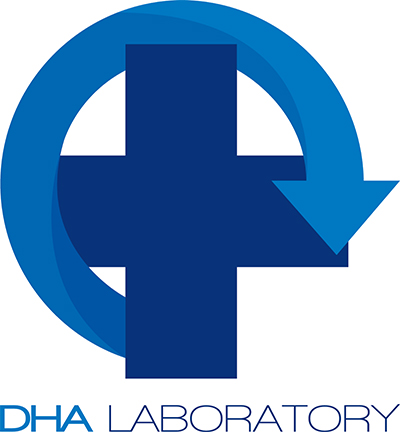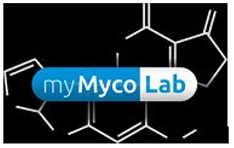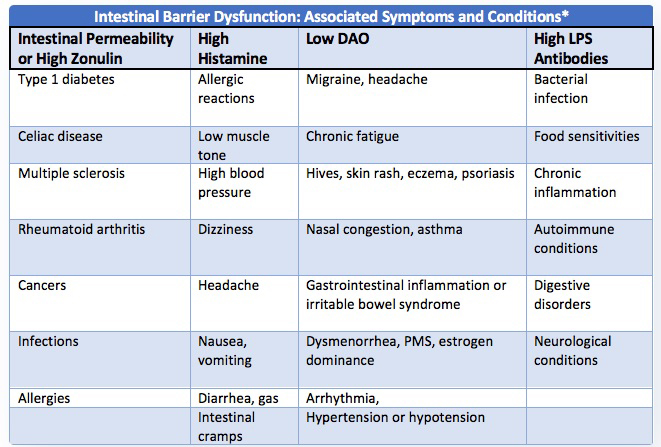One thing that truly sets a Certified Nutrition Specialist (CNS) apart from other practitioners in the health space is our use of excellent tools and the way that we use them – our functional lab analysis and understanding of human biochemistry and physiology are key!
Our approach is different. We use a well-care, or subclinical model. Our easy-to-do, non-invasive laboratory tests allow us to proactively focus on optimizing the body’s core physiological systems. We understand that early detection of hidden health stressors reaches far beyond the alleviation of symptoms. Many health conditions develop over the course of years; exhibiting undiagnosed and various, seemingly unrelated symptoms. All too often, symptoms can be misleading, and treatment plans based on symptoms alone can be unsuccessful in restoring health and function.
This is why, as a CNS, we don’t guess, WE TEST.
These landmark tests are a breakthrough step in allowing you to take responsibility and control of your own health.
WHY test?
You’ll feel better, now and in the future. Once healing opportunities are identified, you will work together with your CNS practitioner to optimize and restore your own health – and you will feel and look better – physically, mentally and emotionally.
How can I help?
Dr. Mandy is a licensed Certified Nutrition Specialist (CNS) and also a Functional Diagnostic Nutrition Practitioner (FDN) and an excellent health detective. Her job is to help you identify your root causes through functional lab testing. Lab testing reveals information about your specific condition and provides your benchmark data to statistically measure your improvement over time. Without lab testing, you are guessing which a waste of your time and money.

What it is: The Metabolomix +® is both a blood and urine test that evaluates over 125 biomarkers and assesses the body’s functional need for 40 antioxidants, vitamins, minerals, essential fatty acids, amino acids, digestive support, and other select nutrients. Personalized recommendations for nutrients are determined by using an algorithm based on the patient’s test findings. The NutrEval Plasma and NutrEval FMV (first morning void) differ based on which sample type is used to measure amino acids, plasma or urine.
Biomarkers tested included:
1. Organic Acids: Malabsorption Dysbiosis Markers; Cellular Energy & Mitochondrial Markers; Vitamin Markers; Neurotransmitter Metabolites; Toxin & Detoxification Markers; NEW Oxalate Markers; Oxidative Stress Markers
2. Amino Acids (urine): Essential Amino Acids; Nonessential Amino Acids; B Vitamin Markers; Urea Cycle Markers; Glycine/Serine Metabolites; Dietary Peptide Related Markers
3. Essential and Metabolic Fatty Acids Markers (RBCs): Omega 3, 6 and 9 Fatty acids, Saturated Fatty acids; Monounsaturated Fats; Delta-6 Desaturase Activity; Cardiovascular Risk
4. Elemental Markers- Nutrient Elements, Toxic Elements
Why it is important: Proper nutrition is key to preventing a number of diseases. Nutrients are necessary to feed every cell and ensure all body systems are functioning properly. Testing can help clinicians and patients gain an understanding of how nutritional imbalances may be impacting their health. Certain conditions or dietary, genetic, and lifestyle factors may predispose a person to having nutrient imbalances.

What it is: Hair tissue mineral analysis is a screening test that measures the levels of 21 minerals and toxic metals present in a sample of hair. Hair, like other body tissues, contains minerals that are deposited as the hair grows. HTMA provides a mineral outline, and other information regarding your metabolic rate (whether you are a fast or slow metabolizer), energy levels, sugar and carbohydrate tolerance, stage of stress, immune system function and glandular activity. This test reveals 20 minerals and toxic metals in a sample of hair. These include but are not limited to calcium, magnesium, sodium, potassium, copper, zinc, phosphorus, and heavy metals including aluminum, lead, cadmium, mercury, and arsenic.
Why it is important: This test can give a lot of big clues about things going on inside your body that is leading to metabolic chaos.
These include things such as:

An in-depth test to evaluate whole body sufficiency for Iodine. After ingesting a 50mg LugoTab tablet, urine is collected for 24 hours. With this test, Iodine sufficiency is determined by comparing the amount of Iodine taken to the amount excreted in the urine. Whole body Iodine sufficiency is reached when 90% or more of the ingested amount is excreted in the urine.
More than 90% of ingested iodine is excreted in the urine within 24-48 hours such that daily iodine intakes in a population can be extrapolated from measures of median spot urinary iodine concentrations. While median urinary iodine concentration is a population indicator of recent dietary iodine intake, multiple collections of 24-hour urinary iodine are preferable to estimate intake in individuals.
Why this test is important? Iodine is a key component of thyroid hormones, which are required throughout life for normal growth, neurological development, and metabolism. Insufficient iodine intake impairs the production of thyroid hormones, leading to a condition called hypothyroidism. Deficiency can also affect neurological and immune function.
**Before participating in this evaluation, discuss any history of thyroid surgery and/or radiation, Hashimoto disease, and any previous problems with your thyroid with your health care provider**
***This test cannot ship to California or New York****

If you’ve been searching for answers to build your health, testing your DNA should be the next step. Tree of Life utilizes a customized and private DNA saliva test kit called Your Genomic ResourceTM and its results to interpret your DNA with their proprietary software
Functional genetics looks at the single nucleotide polymorphisms (SNPs, pronounced “snips”) of genes. When you have SNPs (genetic variants or defects on the genes), enzymes may not be working effectively, or the gene may be upregulated or downregulated. Functional Genetic Analysis is more than just looking at SNPs. Functional means focusing on what is happening underneath your symptoms and why they are happening.
While traditional genetics often looks for potential disease states, functional genetics looks for potential impairment of function and helps find the best nutritional intervention to bring your body back into balance.
People with genetic weaknesses that hamper detoxification who are exposed to high amounts of environmental toxins can be struggling with health due to their limited ability to detoxify.
Functional Genetic Analysis is very complex but provides an incredible amount of information about you. Unfortunately, many practitioners don’t have extensive training in Functional Genetic Analysis. And take a simplistic approach to genetic interpretation. This often leads to misunderstandings and making the wrong supplement recommendations.
With IC Healer, you will receive a Genetic Variant Nutritional Assessment report from the proprietary software that analyzes Your Genomic Resource raw data*, plus recommendations for a custom nutritional protocol based on your unique genetics. This protocol will supplement your missing nutrients and antioxidants, or use nutrients to aid in the production of needed enzymes to ultimately reduce damaging oxidants and support healthy cells. You will also receive other recommendations that could include dietary changes and/or suggested detoxification therapies.
If you have a version 3 or 4 raw data file from 23andMe, this may also be uploaded into the Functional Genomic Analysis software program. 23andMe® is the registered trademark of 23andMe®, Inc.
Tree of Life is not affiliated with 23andMe®.

What it is: If you’ve had chronic urinary tract infections or suspected an embedded infection, you been through the same process over and over. You provide a urine sample, it gets cultured and if the test comes back positive for infection, you are given an antibiotic. If there’s no infection then you are told its IC or BPS.
The problem with these traditional tests is that they are not sensitive enough to identify imbalance to the microbiome of the urinary tract. Dysbiosis (aka imbalanced bacteria) can contribute to inflammation and pain that feels very similar to a UTI.
MicroGen DX testing (also known as Next Generation testing) testing method sequences the patient’s DNA to identify bacteria and fungi in the urine sample from a massive database of over 50,000 microorganisms. Most of these microorganisms cannot be detected by standard urine tests. This test uses PCR (polymerase chain reaction) to search for 21 or more different pathogenic species in your urine as well as drug resistance genes.
Why it is important:
Since the MicrogenDX test detects all bacteria no matter if they are causing symptoms, this test will show up bacteria since the bladder is not sterile. What makes this test helpful is that it can identify if there is an imbalance of bacteria (dysbiosis) and how this compares to patients who do not experience symptoms. Nutritionally, this can help Dr. Mandy craft a nutritional and botanical support to help bring back balance, or refer her patients to other modalities of healing (such as ozone, PEMF, FSM) to help support the process.

There is a strong connection to fibrin, hypercoagulation, biofilms and the embedded infection associated with IC. It is a complex interaction of genetics and environmental influences that leads to this condition. One very strong environmental influence is are infections such as viruses or even their remedies.
Infections cause inflammation, and inflammation can upregulate the coagulation system. The hypercoagulation state can produce fibrin, which is a major component of biofilm infections in the bladder.
What it is: This tests for the different components that are involved in the coagulation pathway.
PAI-1 (plasminogen activator inhibitor) mutation 4G deletion (5G/5G is normal)- just one copy will impair ability to convert plasminogen to plasmin (questions I ask: family history of CV disease, history of chronic infections, ear infections, sinus infections, men have prostatitis)- This population generally does not respond well to antibiotics.Patients with the 4G/4G and 4G/5G deletion have the potential to form deleterious biofilms.
Factor V Leiden Mutation- factor V Leiden (FVL) is a point mutation of factor V resulting in an elimination of the cleavage site in factor V and factor Va. This genetic defect increases the risk of thrombosis, especially in homozygous or pseudo-homozygous FVL-mutated individuals. However, many individuals with the mutation may never develop a venous thrombotic event (VTE).
Thrombin activates factor V, and once activated, it will convert prothrombin to thrombin. Activated protein C, one of the principal physiologic inhibitors of coagulation, degrades factor V. In the presence of what is called thrombomodulin, thrombin acts to decrease clotting by activating protein C; therefore, the concentration and the action of protein C are important determinants in the negative feedback loop through which thrombin limits its activation.
Factor V Leiden is an autosomal dominant genetic condition that exhibits incomplete penetrance, meaning that not every person with the mutation will develop the disease.
Lp(a)- This is often associated with cardiovascular disease. There are some conflicts in the literature about the role it plays, and some say it can be protective. However, one thing we know: Lp(a) binds up TPA-Tissue plasminogen activator-(TpA) is made by endothelial tissue-that makes plasminogen. Without plasminogen, the blood clotting risk increases.
To learn more about this, ready here https://drmandydcn.com/hypercoagulation-another-complex-root-cause-of-interstitial-cystitis/
Why it is important: It is important to know if your coagulation pathway is upregulated. Not only will this help Dr. Mandy with creating therapeutic protocols, but it also can provide insight if you are at risk for developing blood clots and stroke. Hypercoagulation can contribute to biofilm formation, and some patients are genetically susceptible to them as a result of their genetics.

What it is: These include markers such as thyroid, hs-CRP (inflammation), CMP, CBC, full lipid panel, iron panel, Vitamin D, homocysteine, comprehensive urinalysis, uric acid, GGT, LDH..
Why it is important: Identifying areas of imbalance and dysfunction in normal physiology can give you subjective and objective information based on a concept of optimal physiological functioning. You can learn a lot about your health with a basic blood chemistry report, and can use the information to craft an individualized approach toward your healing. It often can also give you piece of mind in knowing your condition has a root cause.

What it is: The Organic Acids Test (OAT) offers a comprehensive metabolic snapshot of a patient’s overall health with over 70 markers. It provides an accurate evaluation of intestinal yeast and bacteria. Abnormally high levels of these microorganisms can cause or worsen behavior disorders, hyperactivity, movement disorders, fatigue and immune function. Many people with chronic illnesses and neurological disorders often excrete several abnormal organic acids in their urine. The Organic Acids Test also includes markers for vitamin and mineral levels, oxidative stress, neurotransmitter levels, and is the only OAT to include markers for oxalates, which are highly correlated with many chronic illnesses.
Why it is important: If abnormalities are detected using the OAT, treatments can include supplements, such as vitamins and antioxidants, or dietary modification. Upon treatment, patients and practitioners have reported significant improvement such as decreased fatigue, regular bowel function, increased energy and alertness, increased concentration, improved verbal skills, less hyperactivity, and decreased abdominal pain. The OAT is strongly recommended as the initial screening test.

What it is: MosaicDX’s Glyphosate Test is a urine-based assay that assess an individual’s exposure to glyphosate. Additionally, MosaicDX offers testing of water samples to assist in identifying an important potential source of glyphosate exposure from contaminated drinking water.
Why it is important: Glyphosate is the world’s most widely used herbicide and the primary toxic chemical Roundup™ which is utilized by homeowners, municipalities, and farmers to prevent the growth of weeds and grasses. Studies have linked glyphosate exposure to chronic conditions and various types of cancer, such as non-Hodgkin lymphoma, renal tubule carcinoma, pancreatic islet-cell adenoma, and skin tumors. Glyphosate is also known to disrupt the balance of gut bacteria, reducing the ratio of beneficial to harmful bacteria.
There is a strong correlation between glyphosate usage and several chronic illnesses. While correlations do not necessarily imply causation, these findings do raise concerns about the widespread use of a chemical that affects all life on earth.
Studies have found high correlations between glyphosate exposure and diseases and conditions like:
Assessment of glyphosate exposure is critical in understanding total toxic body burden. There is a strong correlation between glyphosate usage and several chronic illnesses. While correlations do not necessarily imply causation, these findings do raise concerns about the widespread use of a chemical that affects all life on earth. In March 2015, IARC classified glyphosate as “probably carcinogenic to humans” (Group 2A). IARC also concluded that there was “strong” evidence for genotoxicity, both for “pure” glyphosate and for glyphosate formulations. To reach these conclusions, IARC reviewed about 1000 studies. Some of the studies looked at people exposed through their jobs, such as farmers. Others were experimental studies on cancer and cancer related effects in experimental systems.

Mycotoxins are a secondary metabolite of mold spores; in other words, they are what mold spores produce to weaken and destroy your health. Mycotoxins are very strong and powerful and destructive to our organs and systems.
Mycotoxins can cause diverse and powerful toxic effects. They are:
What it is: Blood tests for mycotoxins have been used for the last 20 years and are highly accurate. The specificity and sensitivity of blood serum testing for the presence of IgG and IgE antibodies to mycotoxins in the blood are very high.
MyMycoLab tests for IgG and IgE antibodies for 12 mycotoxins for a total of 24 test results.
Mycotoxins from:
Why it is important: The most accurate testing for mycotoxin exposure is by blood serum antibody testing for 12 different mycotoxins by far. Urine testing doesn’t test for as many mycotoxins nor is it precise, as urine is a body excretion, like sweat and stools.
URINE TESTING FOR MOLD IS NOT SUPERIOR
The United Nations Food and Agriculture Organization and the World Health Organization has estimated that 25% of the world’s crops, such as nuts, cereals, and rice are contaminated by mold. Low levels of mycotoxins are found in many foods: cereals, meat, fruits, nuts, wine, beer, coffee, etc. For that reason, mycotoxins can be found in the urine in parts per billion in healthy people. Laboratories offering urine mycotoxin testing are measuring this minute amount. Furthermore, some mycotoxins cannot be measured in urine, such as Ochratoxin. Almost all of the Ochratoxin in your body is very tightly attached to your body’s main protein, albumin, so it can’t be excreted through the kidneys.
WHY TESTING FOR IgG MOLDS IS NOT HELPFUL
Testing for antibodies to molds does not help at all. Say a person is 45 years old and went to summer camp for a couple of weeks when they were 12 years old. Let’s say that the room that person slept in a summer camp that had mold. That person’s immune system will build antibodies to those molds and they will always be present in the blood. So doing blood tests for molds doesn’t help in WHEN the person was affected by molds, which could have been years ago. Mycotoxins, being toxins made by molds, is much more relevant in medicine to see if a person is affected by them.

What it is: The DUTCH Complete is the most advanced hormone test, offering an extensive profile of sex and adrenal hormones and melatonin, along with their metabolites, to identify symptoms of hormonal imbalances.
Why it is important: Many people who have had long battles with infections have HPA axis dysfunction, hormone imbalance and oxidative stress. The Dutch will give you some insight on your hormone production, adrenal output, as well as some key neurotransmitter production through their recently added Organic Acids.
What happens next?
Once Mandy obtains your lab results, she will craft a personalized healing program. This process shortens the timeline often extended with typical &trial and error& methods that often leaves people spinning their wheels, frustrated and still in pain. Most importantly, this process saves you time and money.

What it is: Stool testing has become a popular method for evaluating the status of an individual’s microbiome. However, many of these tests lack accuracy, reliability, and functionality. BiomeFx™ uses the most advanced and accurate sequencing technology and explores some of the many inner functions of the gut microbiome. The technology uses whole genome sequencing that looks at the entire genome, which results in lower false positive rate than 16S. it can identify bacteria, viruses, fungi and protists.
BiomeFX’s test explores both the undesirable organisms and keystone species in the gut that are crucial to maintaining overall health and the metabolic functions that rely on support from the gut microbiome. BiomeFx™ analyzes undesirable microorganisms and measures their relative abundance as a percentage of the entire microbiome. This is different from traditional stool tests looking for any detectable number of organisms present. It is also worth noting that older technologies have limitations in their sequencing methods, resulting in a high rate of undesirable organism false positives.
Why it is important: BiomeFx™ 3.5 update includes:
By evaluating multiple aspects of microbial balance, strength, and resilience, BiomeFx™ provides a customized plan to re-balance the gut microbiome. This is just part of the reason why whole-genome sequencing is the most accurate technology on the market
With these insights, actionable nutrition, lifestyle, and supplement recommendations are provided as a road map for improving each unique gut microbiome. This is the future of microbiome assessment and analysis.

What it is:
The P88 Dietary Antigen Test is one single test combining IgE, IgG, IgG4 and complement (C3d) reactions to 88 of the most common foods found in the diet using an indirect ELISA (enzyme-linked immunosorbent assay). The system is also capable of detecting immune complexes that contain the complement markers C3D or C1q.
The P88 Dietary Antigen Test was the first test on the market to measure and report immune complexes containing C3d. Complement activation is well-defined in the research as not only a cause of inflammation, but one of the strongest causes.
A highly comprehensive test of immune reactions, Precision Point Diagnostics’ P88 Dietary Antigen Test helps you identify and address food allergies and food sensitivities in patients with chronic illness. Overt IgE-mediated food allergies can lead to hives, anaphylaxis, or digestive issues while delayed food sensitivities (IgG and IgG4) are linked to sinus problems, acne, gas, bloating, fatigue, constipation, autism, irritable bowel syndrome, and even depression. Identifying and eliminating food sensitivities can also assist in the healing of intestinal permeability.
Why it is important: A reaction to food is an abnormal response in the gastrointestinal tract that can occur for different reasons. The food sensitivity test I use can detect responses which are associated with 3 different responses: a true allergic response that is mediated by an IgE response, a delayed allergic response that is mediated by an IgG response, complement that heightens the immune response and IgG4 that is associated with autoimmune conditions. This test is unique in that it can detect all three pathways as well as complement to give you the deeper understanding of foods that may be contributing to inflammation.
Symptoms associated with food sensitivity include
P88 Dietary Antigen Test results can lead to more precise treatment plans and better patient outcomes. Studies show that patients given an elimination diet based on the results of our food allergy and sensitivity testing experienced fewer headaches and less abdominal pain, diarrhea, constipation, and bloating. Knowing exactly what foods your patient reacts to can help to avoid unnecessarily restrictive diets and treatment protocols that inadvertently expose your patient to his or her reactive foods.
Precision Point Diagnostics’ Advanced IBA profile takes a deep dive into intestinal barrier function. Using a collection of innovative biomarkers, this test helps clinicians determine if their patients have intestinal permeability, or “leaky gut.” Intestinal permeability has been suggested as a root cause of autoimmune diseases, systemic inflammation, and food sensitivities. Healing the gut barrier is so pivotal for resolving chronic disease that if it isn’t addressed, other treatments will have little to no effect.
The Advanced IBA profile stands out for its unique, clinically relevant markers which tell a complex story about gut barrier health. Histamine and diamine oxidase (DAO) give information about histamine balance and gut mucosal health. Plasma Zonulin is a well-documented marker of intestinal tight junctions and is the preferred specimen for assessment. Lipopolysaccharides (LPS) are endotoxins produced by gram-negative bacteria. LPS antibodies give information about inflammation and intestinal permeability. Patients with allergies, food sensitivities, digestive symptoms, headache, cognitive decline, depression, and more can benefit from the Advanced IBA profile (see Table of Associated Symptoms and Conditions).

Based on the results of the Advanced IBA profile, clinicians can tailor specific treatment protocols for their patients and monitor progress over time. Protocols to improve intestinal permeability are not one-size-fits-all. The Advanced IBA profile helps to identify the root cause of barrier dysfunction so that treatment is speedy, cost-effective, and successful. Some patients need to address DAO and histamine balance. Others need to address root causes of Zonulin elevation or high LPS antibodies. With the Advanced IBA profile, you can pinpoint and treat the causes of intestinal permeability and get your patients back on the road to wellness.
My typical client timelines:
This program is a commitment. It’s not cheap and it’s not quick. You didn’t get this way overnight and you can’t expect to get out of your condition overnight
If you work with Mandy, she can promise you three things:
Uncover the
ROOT CAUSE
of your issues and
reclaim your heath
NATURALLY